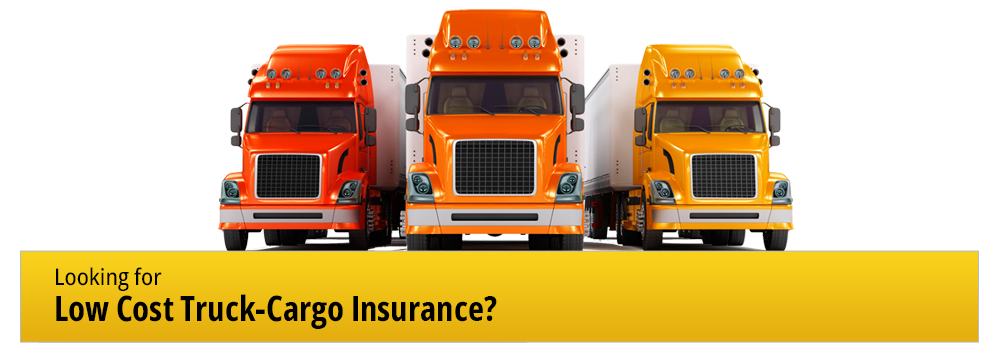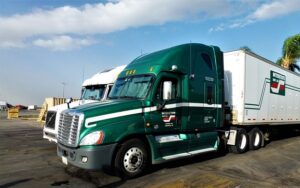
 Trailer Interchange Insurance
Trailer Interchange Insurance
What is Trailer Interchange Insurance?
Trailer Interchange Insurance is a type of insurance coverage designed specifically for trucking companies involved in the transportation of trailers owned by others. It protects both parties involved in the interchange of trailers, which typically occurs when one trucking company agrees to transport another company’s trailer from one location to another.
This insurance coverage provides financial protection against damage or loss to the trailer being transported, including coverage for accidents, theft, vandalism, and natural disasters. It also covers expenses related to legal fees and potential liabilities arising from accidents or damages caused during the interchange process.
Trailer Interchange Insurance is important because it helps mitigate the financial risk associated with transporting trailers that do not belong to the insured trucking company. Without this coverage, trucking companies would be held financially responsible for any damages or losses that occur during transit.
By obtaining Trailer Interchange Insurance, trucking companies can ensure they have adequate protection in place and meet the necessary requirements to participate in trailer interchange agreements.
Why is Trailer Interchange Insurance important?
Trailer Interchange Insurance is vital for trucking companies engaged in the transportation of trailers owned by others. It plays a crucial role in protecting both parties involved in the interchange process.
This insurance coverage is important because it provides financial protection against various risks that can occur during the transportation of trailers. Accidents, theft, vandalism, and natural disasters are all unforeseen events that could lead to significant financial losses. Without Trailer Interchange Insurance, trucking companies would be liable for bearing these costs themselves.
Furthermore, having Trailer Interchange Insurance helps trucking companies meet the requirements set by other parties involved in trailer interchange agreements. Many trailer owners require carriers to have this coverage before agreeing to an interchange arrangement.
By securing Trailer Interchange Insurance, trucking companies can mitigate their financial risk and ensure that their operations continue smoothly. It allows them to focus on their core activities without worrying about potential liabilities or expenses arising from damage or loss of trailers during transportation.
Understanding the coverage options
Trailer Interchange Insurance offers coverage for a variety of risks that can occur during the transportation of trailers. It is important for trucking companies to understand the different coverage options available to ensure they have adequate protection.
One common type of coverage is Physical Damage Coverage, which provides compensation for damages to the trailer caused by accidents, vandalism, theft, or natural disasters. This coverage is essential in protecting the financial interests of both the trucking company and the trailer owner.
Liability Coverage is another important component of Trailer Interchange Insurance. It provides protection against claims made by third parties for bodily injury or property damage arising from an accident involving the interchanged trailer. This coverage ensures that both parties are safeguarded from potential lawsuits and costly legal expenses.
Other coverage options include Cargo Insurance, which protects against loss or damage to goods being transported, and Non-trucking Liability Insurance, which covers liability when operating without a trailer under an interchange agreement.
Understanding these various coverage options will help trucking companies select the right insurance policy that comprehensively addresses their specific needs and minimizes potential risks.
Factors to consider when choosing Trailer Interchange Insurance
When selecting Trailer Interchange Insurance, there are several important factors to consider. First and foremost, it is crucial to assess the specific coverage needs of your trucking company. Determine what risks you want protection against, such as physical damage to trailers, liability claims, or cargo loss.
Next, carefully review the insurance policy’s terms and conditions. Look for details on coverage limits, deductibles, and exclusions. It’s crucial to understand what events or situations are covered and which ones are not.
Another factor to consider is the financial stability and reputation of the insurance provider. Research their track record in handling claims and their overall customer satisfaction ratings.
Additionally, consider any additional services offered by the insurance provider, such as emergency roadside assistance or loss prevention programs. These value-added services may enhance your overall coverage and provide extra peace of mind.
Lastly, make sure to compare quotes from different insurance providers to ensure you’re getting the best coverage at a competitive price. Remember that cost should not be the sole determining factor; prioritize finding comprehensive coverage that meets your specific needs.
By considering these factors when choosing Trailer Interchange Insurance, you can make an informed decision that protects your trucking company and trailer assets effectively.
Tips for finding the right insurance provider
Finding the right insurance provider for your trailer interchange coverage can be a daunting task. To help you navigate through the process, here are some tips:
- Research and compare: Take the time to research different insurance providers and compare their offerings. Look for providers that specialize in commercial trucking insurance and have experience in handling trailer interchange coverage.
- Check financial stability: It is crucial to choose an insurance company with strong financial stability. You want to ensure that they have the resources to fulfill claims and provide support when needed.
- Read customer reviews: Look for feedback from other trucking companies who have used the insurance provider you are considering. Reviews can give you insights into their customer service, claims handling process, and overall satisfaction.
- Seek recommendations: Reach out to fellow trucking professionals or industry associations for recommendations on reliable insurance providers. They may have valuable insights based on their own experiences.
- Understand the policy details: Carefully review the policy terms and conditions before making a decision. Take note of coverage limits, deductibles, exclusions, and any additional services offered.
By following these tips, you can make an informed decision when choosing an insurance provider for your trailer interchange coverage needs.
Common misconceptions about Trailer Interchange Insurance
There are several common misconceptions about Trailer Interchange Insurance that can lead to confusion and misunderstandings. One common misconception is that the trailer interchange coverage provided by the motor carrier’s primary liability policy is sufficient. However, this is not true. Trailer interchange coverage is a separate insurance policy specifically designed to cover damage or loss of non-owned trailers while in the motor carrier’s possession.
Another misconception is that trailer interchange coverage is only necessary for larger trucking companies. In reality, any motor carrier involved in trailer interchange agreements should have this insurance to protect themselves from potential liability claims.
Some also believe that trailer interchange coverage is only needed if there is an exchange of trailers with another motor carrier. However, this coverage is required even if the exchange involves a customer or a third party.
It is important to dispel these misconceptions and ensure that trucking companies understand the importance of having appropriate trailer interchange insurance to safeguard their assets and protect against potential liability claims.
Conclusion
In conclusion, Trailer Interchange Insurance is a crucial insurance policy for any motor carrier involved in trailer interchange agreements. It provides valuable coverage for damage or loss of non-owned trailers while in the carrier’s possession, protecting them from potential liability claims.
It is important to understand that the coverage provided by a motor carrier’s primary liability policy is not sufficient for trailer interchange situations. Separate Trailer Interchange Insurance is necessary to ensure adequate protection.
Regardless of the size of the trucking company or whether the exchange involves another carrier or a third party, having this insurance is necessary to safeguard assets and mitigate potential risks.
When selecting Trailer Interchange Insurance, it is essential to consider factors such as coverage limits, deductibles, and endorsements that meet specific business needs. Working with a reputable insurance provider familiar with the trucking industry can be beneficial in finding the right coverage at competitive rates.
Dispelling common misconceptions about Trailer Interchange Insurance is critical to ensuring trucking companies are adequately protected. By understanding its importance and securing the appropriate insurance, motor carriers can navigate trailer interchange agreements with confidence and peace of mind.
